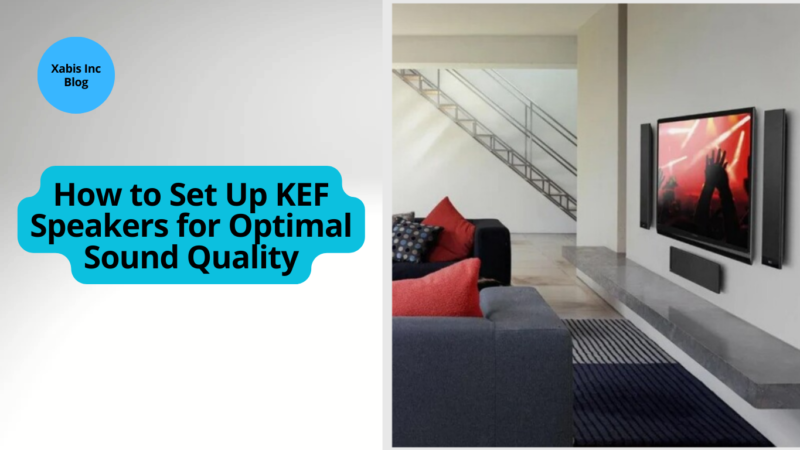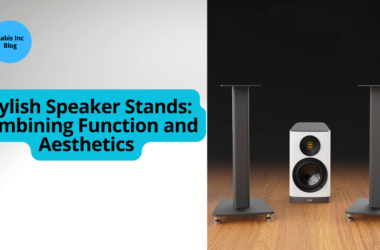So, you’ve finally gotten a pair of KEF speakers. Congrats! You’re in for a treat. With crisp, immersive sound and modern designs, KEF speakers could be quite the addition to any audiophile’s collection or that of a casual music lover. But, like all good things in audio, proper setup will make all the difference.
In this post, we will explain how to set up your KEF speakers and the KEF subwoofer to make the most out of your speakers. We’ll go through positioning, wiring, and calibration tips so that you can enjoy your KEF system to its fullest.
1. Finding the Perfect Spot for Your KEF Speakers
Great sound is all about the right placement. While the KEF speakers are designed to offer balanced sound, placement in your room can make quite a big difference.
Begin with the front speakers. Place your left and right KEF speakers away from your listening position. Generally speaking, the best rule of thumb is to have you and the speakers form an equilateral triangle-you want the speakers angled in a little toward your seated area for maximum sound dispersion and staging.
For bookshelf KEF speakers, you can consider setting them on ear-level stands when seated. If you have floor-standing KEF speakers, ensure they have some breathing space at least 2-3 feet from the walls to avoid sound reflections.
2. Positioning the KEF Subwoofer
A KEF subwoofer is basically what any person needs to have deep and rich bass fill the room. Subwoofer placement has a great impact on overall sound quality.
Subwoofers can be a little more demanding than regular speakers since bass frequencies are omnidirectional, meaning they could bounce around your room differently. To begin with, place the KEF subwoofer near the front of the room and closer to one of the front speakers. If things get too boomy or the bass becomes a little muddy, it’s time to shift it around.
3. Connecting Your KEF Speakers and Subwoofer
Now that you have decided on ideal places for your speakers and subwoofer, it is time to connect them all up. Use good-quality speaker cables to provide the best possible performance for your KEF speakers.
To connect passive KEF speakers, simply connect the speakers to your amplifier or receiver, matching positive to positive and negative to negative at both ends. Most speaker cables are colour-coded, so this shouldn’t be too hard to figure out. If you’ve invested in active KEF speakers, such as the LS50 Wireless, setup is even easier since the amplifiers are contained within them. Just connect them to a power source, pair them with your source device, and you’ll be ready.
4. Calibration and Fine-tuning for Optimal Sound
The next step is calibration once your KEF speakers and KEF subwoofer are connected. Most AV receivers and amplifiers feature a room calibration system, which can be Audyssey or Dirac. These systems use a microphone to measure your room’s acoustics and adjust the sound to suit your preferences.
If you’re making manual adjustments, here’s a rough guide to get you started:
Treble and bass adjustments: If you find the sound too shrill or muffled, fiddle with your amplifier or receiver’s treble and bass settings.
Subwoofer volume: You want to feel the bass without overpowering the rest of the sound. So go low with the subwoofer’s volume and gradually increase it until you reach that sweet spot when it’s there but not dominating.
Speaker Distances: You will have to accurately input the distance of each speaker from your listening position to your AV receiver settings, including your KEF sub. That way, all of the sounds can reach your ears simultaneously.
Conclusion
Setting up KEF speakers and a KEF subwoofer for optimal sound quality doesn’t have to be complicated, but it requires patience and experimentation. Once you’ve dialed in the positioning and calibration, you’ll be rewarded with an audio experience that’s crisp, clear, and immersive. Whether watching movies, listening to your favorite music, or gaming, your KEF speakers will bring the sound to life in a way only KEF can.








